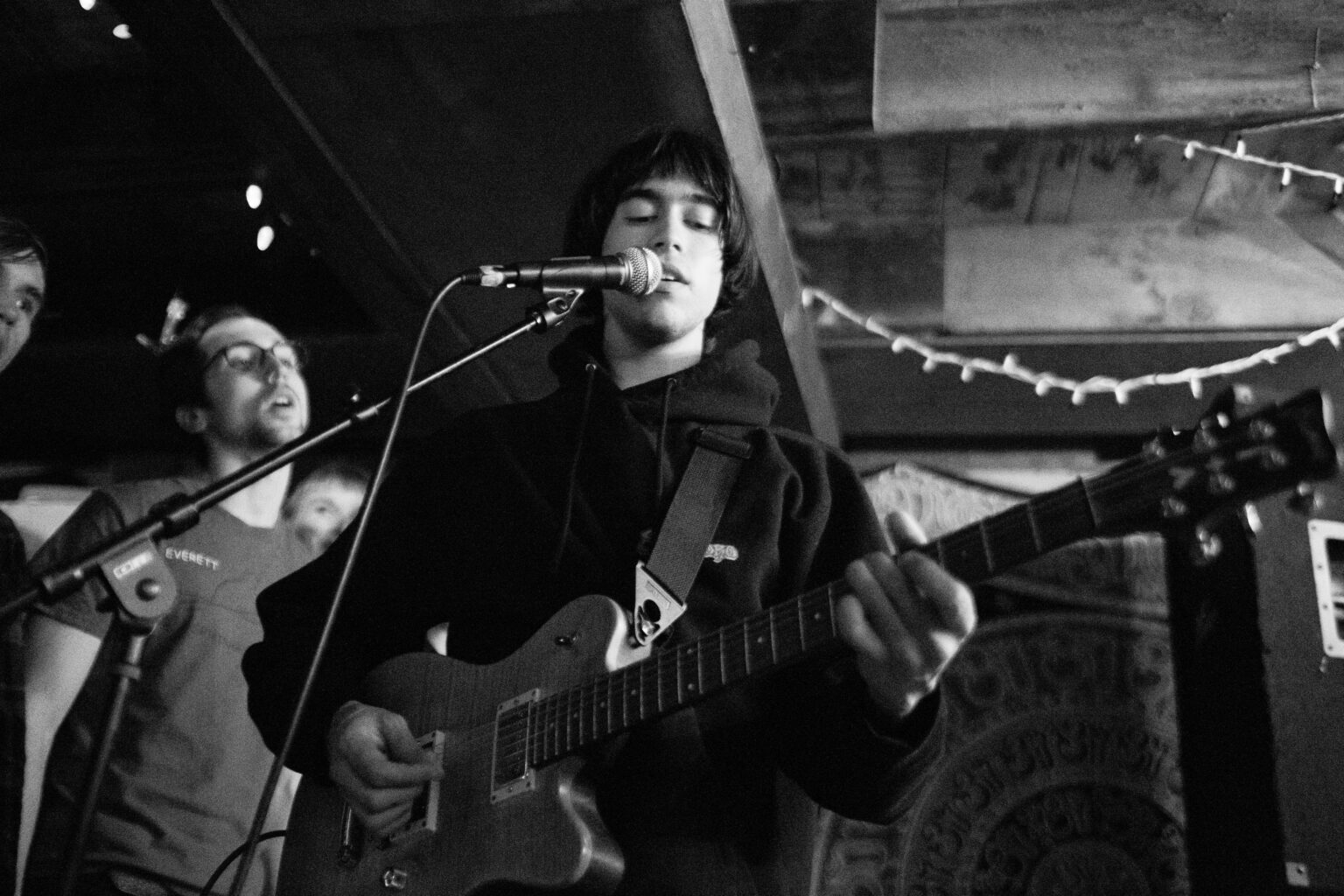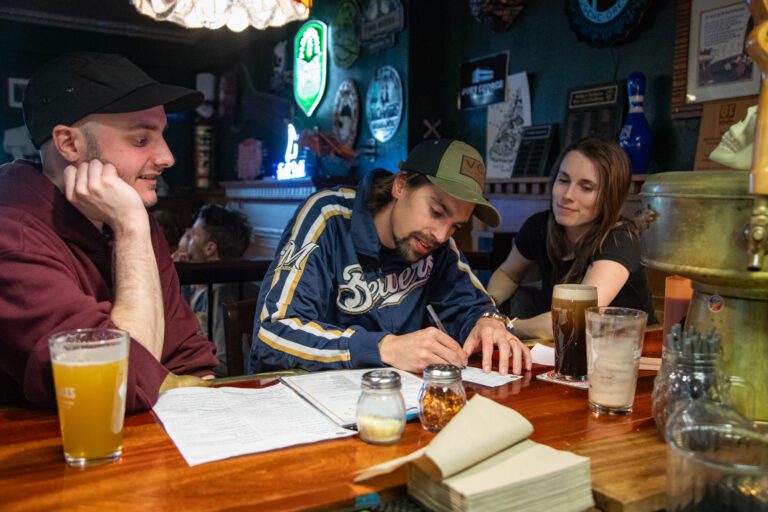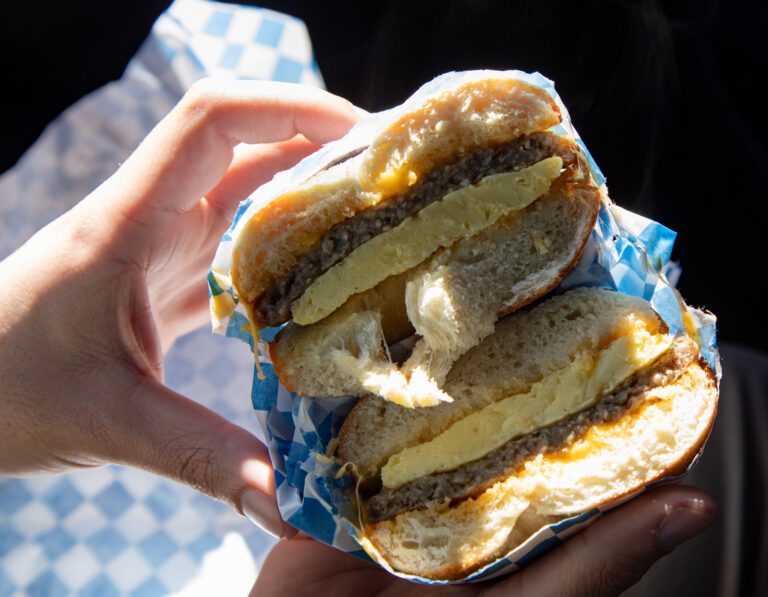Beginning in the 1990s, Bellingham concertgoers looked to people’s homes to find energetic, highly interactive shows.
The shows share an ethos with other underground movements: Musicians are empowered to do things their own way without a major label, and all ages can attend.
House shows are concerts that take place anywhere other than designated music venues, such as bars, establishments after regular hours or in people’s homes, often near Western Washington University.
The houses are only discoverable through asking for an address, whether in person or on social media. Shows are often hosted in basements or living rooms, depending on where there is the most space.
Bands are much closer to the crowd than at many designated music venues that have elevated stages and barricades. At house shows, bands will sometimes be in the crowd, audience members and musicians feeding off each other’s energy.
Three house show venues are still active in Bellingham, Make.Shift Art Space Operations Manager Kelly Sorbel said. The scene in Bellingham is now the most diverse Sorbel has ever seen, especially in age and ethnicity. Hip-hop and jazz shows are rapidly expanding, largely thanks to Black Noise Records, a record shop and label on Bay Street.
“It’s a really present and growing scene. Even bands playing their first show here will bring 100 people,” Sorbel said, which is significantly greater than it was before.
House show history
In 1987, Dave Crider founded Bellingham-based independent record label Estrus Records, which brought garage bands to the forefront of local music. Young people found that by hosting shows in their houses, they could join the burgeoning independent scene.
In the late ‘90s, an all-ages venue called the Show Off Gallery had both local and touring bands, and Bellingham became a popular tour stop into the early 2000s, said Kelly Sorbel, operations manager at the Make.Shift Art Space. Around that time, bands from Bellingham began to gain popularity by opening on larger tours, such as when Bellingham band The Posies opened for Soundgarden at Western in 1990.
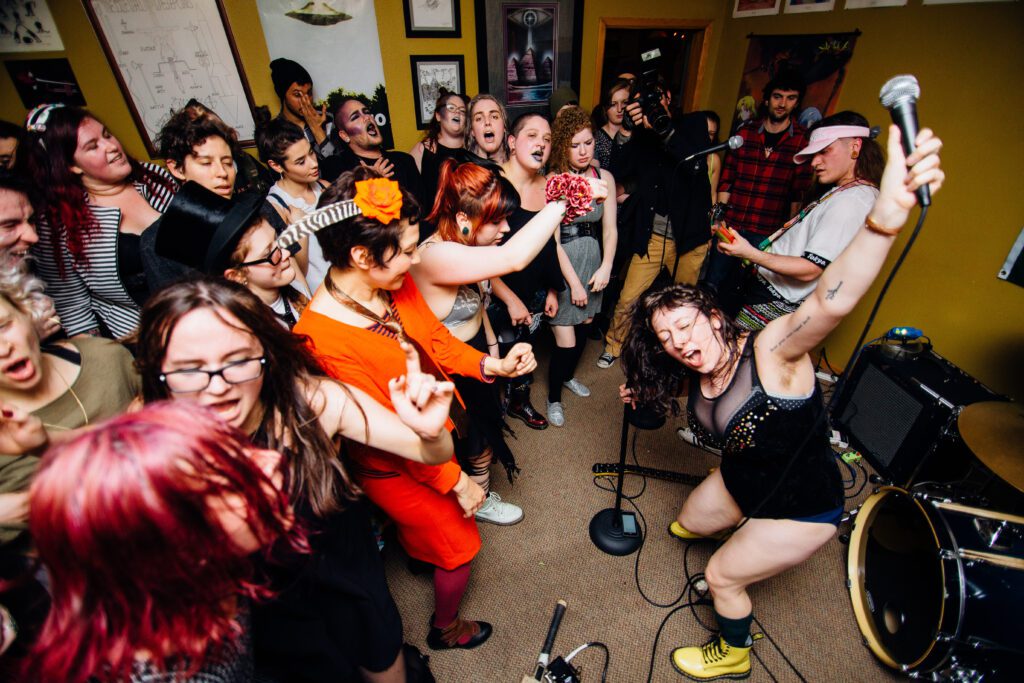
In 2011–12, Camila Wilde used to live in a house show venue just outside of downtown called Champ House, where she said the energy was “chaotic and alive.” She contacted bands through Facebook and had at least six bands play each year. Wilde said they would play in the living room, where the house accumulated so many people in the audience, the floorboards sank.
House shows tend to attract younger audiences and bands, usually college-age youth since many of Bellingham’s designated music venues are 21-plus, but Wilde’s bands and crowds were slightly older, around 25-35 years old. On the posters advertising the shows, the address listed was “ask the nearest punk.”
One of Wilde’s roommates at the time, Allie McFarland, was first introduced to local music on a trip to Bellingham. She asked an employee at Everyday Music for a local band recommendation, and he gave her the album “American Folk Horror” by Federation X. McFarland said that album made her want to “experience life in a town that had a culture that fostered the music I heard as I drove over Chuckanut Drive that night.”
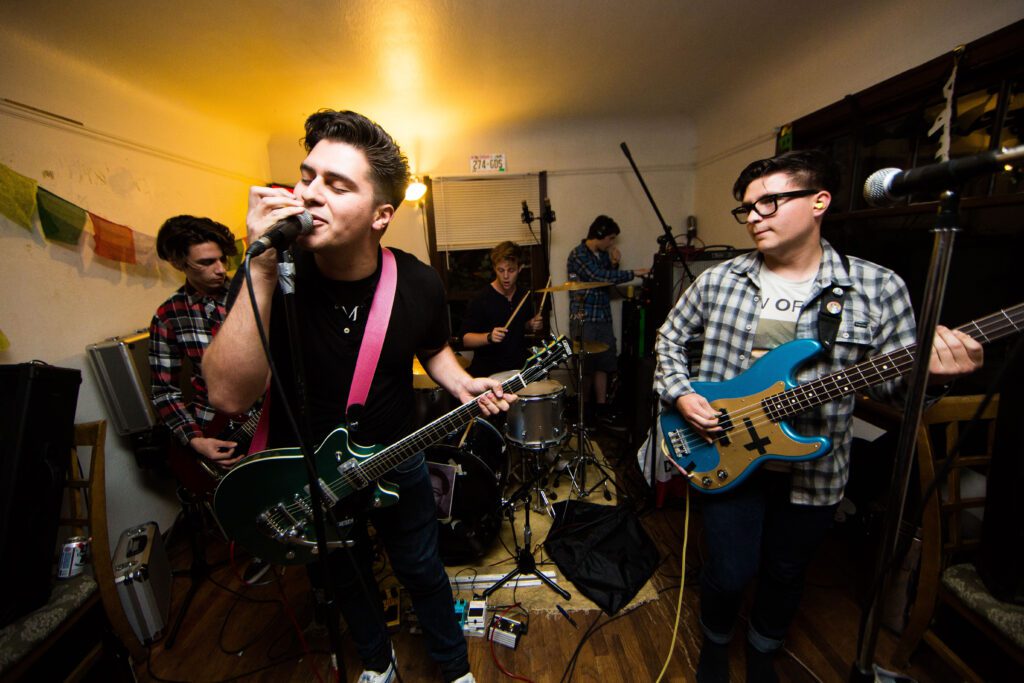
McFarland said she met Wilde and another Champ House roommate, who goes by Velvet, at a rock show and decided she wanted to be part of Bellingham house show culture. At Western, she met her future roommate, Wilde, and Violet Vasquez, a Champ House regular who went on to front Bellingham-originated rock band Mount Saturn.
The house show scene at the time had “three to five shows in Bellingham, all for free in people’s homes,” and at another venue near Western, bands like Swine, Livingston Seagull, WEEED and Cower all had roots, McFarland said.
Scene safety and culture
Sometimes safety issues arise at house shows, including sexually predatory behavior, which is among the problems current hosts call out and make efforts to prevent and stop.
The Make.Shift addresses these issues at Scene Safety workshops hosted every six months, where people hosting and attending house shows share their experiences and how to improve safety and de-escalate problems.
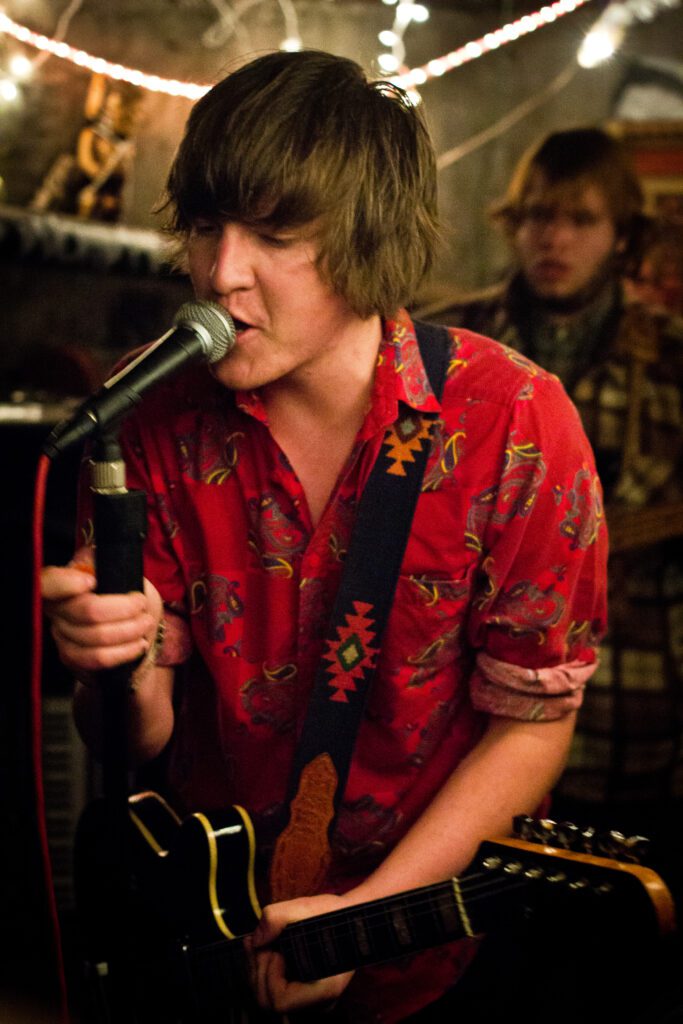
West Sound Records shares upcoming shows each week on their Instagram, @westsoundrecords, including house shows. To tell a house show apart from a regular gig, posts will often say “dm for address.”
To maintain the underground music scene nature of house shows and protect people’s residences, addresses or other defining characteristics of house venues are not to be publicly shared.

